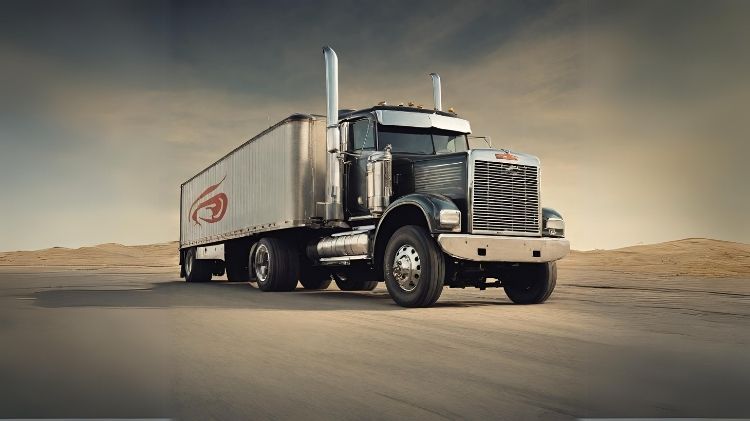Optimizing Towing Experience The Comprehensive Guide to Truck Air Suspension Kits
Truck enthusiasts understand the critical role that suspension plays in their vehicle’s performance, especially when towing heavy loads. However, traditional suspension systems often fall short when faced with the demands of towing, compromising both comfort and safety. This is where truck air suspension kits step in, offering a revolutionary solution to the challenges of towing without compromise.
In this comprehensive guide, we’ll delve into the world of truck air suspension kits and explore how they transform the towing experience. Whether you’re hauling a camper, boat, or construction equipment, upgrading to an air suspension system can make a world of difference.
Gone are the days of enduring a rough and bumpy ride while towing. With air suspension, truck owners can enjoy a smoother, more stable driving experience, even when navigating uneven terrain or facing strong crosswinds. But the benefits don’t stop there.
By leveling the load and adjusting ride height on the fly, air suspension kits ensure optimal weight distribution and improved handling, minimizing the risk of sway and enhancing overall control. This not only makes towing safer but also reduces wear and tear on the vehicle, extending its lifespan.
Moreover, the versatility of air suspension allows truck owners to customize their ride to suit different towing scenarios, whether it’s hitching up a trailer or tackling off-road trails. With the ability to fine-tune ride height and stiffness, drivers can enjoy maximum comfort and performance no matter the conditions.
In the following chapters, we’ll explore the features and benefits of truck air suspension kits in greater detail, helping you make an informed decision when upgrading your vehicle’s suspension system. Say goodbye to compromise and hello to a smoother, more enjoyable towing experience with air suspension.
Understanding Air Suspension
In the realm of truck upgrades, air suspension stands out as a game-changer. But what exactly is air suspension, and how does it differ from traditional suspension systems? Let’s dive into the mechanics and components that make air suspension a top choice for truck owners looking to enhance their towing experience.
Air suspension, as the name suggests, relies on air springs or airbags to support the vehicle’s weight and absorb shocks from the road. Unlike traditional coil or leaf spring setups, air suspension allows for adjustable stiffness and ride height, thanks to the compressibility of air.
At the heart of an air suspension system are the air springs, which replace conventional coil or leaf springs. These air springs are typically made from reinforced rubber or synthetic materials and are designed to withstand heavy loads while providing a smooth ride.
In addition to air springs, air suspension kits include other essential components such as air compressors, reservoir tanks, and control systems. The air compressor pumps air into the air springs, allowing for adjustments to ride height and stiffness on the fly. Meanwhile, the reservoir tank stores compressed air for quick response times, ensuring consistent performance even under varying loads.
The control system, often equipped with sensors and electronic modules, monitors vehicle height and adjusts air pressure accordingly to maintain optimal ride height and stability. Some advanced systems even offer automatic leveling capabilities, ensuring a balanced ride regardless of cargo or towing conditions.
Understanding the intricacies of air suspension is key to harnessing its full potential. In the next chapters, we’ll explore how air suspension enhances load capacity, improves towing performance, and offers unmatched versatility for truck owners seeking the ultimate towing experience.
Increased Load Capacity
One of the primary concerns for truck owners when towing heavy loads is maintaining stability and control. Traditional suspension systems can struggle to handle the added weight, leading to sagging rear ends and compromised handling. However, with air suspension kits, truck owners can significantly increase their vehicle’s load-carrying capacity without sacrificing performance.
Air suspension systems excel at load leveling, a process that involves adjusting air pressure in the air springs to compensate for uneven weight distribution. When a heavy trailer or payload is hitched to the truck, the air suspension automatically adjusts to ensure that the vehicle remains level, minimizing sag and improving overall stability.
By distributing the weight more evenly across all four wheels, air suspension kits reduce strain on individual components, such as the rear axle and suspension springs. This not only enhances the truck’s towing capabilities but also reduces the risk of premature wear and tear, extending the lifespan of vital mechanical parts.
Moreover, increased load capacity translates to improved safety on the road. With a more stable and balanced ride, truck drivers can navigate highways and winding roads with confidence, even when hauling large trailers or heavy equipment. This is particularly beneficial for long-distance towing journeys, where maintaining control and stability is paramount.
Whether you’re towing a camper for a weekend getaway or hauling construction materials for a job site, investing in an air suspension kit can make a world of difference. In the following chapters, we’ll delve deeper into the benefits of air suspension for towing, exploring how it enhances ride quality, towing performance, and overall driving experience.
Adjustable Ride Height
One of the standout features of air suspension kits for trucks is their ability to offer adjustable ride height on the fly. Unlike traditional suspension systems, which are fixed in their configuration, air suspension allows truck owners to tailor their ride height to suit different driving conditions and towing scenarios.
The ability to adjust ride height offers numerous benefits for truck owners. When towing a trailer, for example, raising the rear end of the truck can help level the vehicle and improve towing stability. This not only enhances safety on the road but also reduces strain on the truck’s suspension components, prolonging their lifespan.
Conversely, lowering the ride height can improve aerodynamics and fuel efficiency during highway driving, especially when the truck is unladen. Lowering the truck’s center of gravity also enhances handling and cornering stability, providing a more dynamic driving experience.
Furthermore, adjustable ride height is particularly advantageous for off-road enthusiasts. By raising the ride height, truck owners can increase ground clearance and tackle rough terrain with confidence, without worrying about bottoming out or damaging the undercarriage.
The convenience of adjustable ride height extends beyond towing and off-roading. Whether navigating tight parking spaces or loading cargo into the truck bed, being able to raise or lower the vehicle at the touch of a button can make everyday tasks easier and more efficient.
In the next chapters, we’ll explore how adjustable ride height, combined with other features of air suspension kits, contributes to improved towing performance and overall driving experience for truck owners.
Improved Towing Performance
When it comes to towing heavy loads, performance and safety are paramount. Traditional suspension systems often struggle to cope with the added weight, resulting in reduced stability, increased sway, and compromised braking. However, with air suspension kits, truck owners can experience a significant improvement in towing performance across various metrics.
One of the key ways in which air suspension enhances towing performance is by providing better weight distribution and sway control. By automatically adjusting air pressure in the air springs, air suspension systems maintain a level ride height, even when faced with uneven loads or crosswinds. This minimizes sway and improves overall stability, making towing safer and more manageable.
Moreover, air suspension kits help to mitigate the effects of trailer-induced pitch and yaw, ensuring a smoother and more controlled towing experience. By actively counteracting these forces, air suspension systems improve the truck’s handling characteristics, allowing drivers to maintain better control over their vehicle and trailer.
Another area where air suspension excels is in improving braking performance while towing. By maintaining a level ride height and distributing weight more evenly across all four wheels, air suspension reduces the risk of brake fade and improves stopping distances. This is particularly important when towing heavy trailers or descending steep grades, where reliable braking is crucial for safety.
Overall, the combination of enhanced weight distribution, sway control, and improved braking performance makes air suspension an invaluable upgrade for truck owners who frequently tow heavy loads. In the following chapters, we’ll delve deeper into the specific features and technologies that contribute to the superior towing performance offered by air suspension kits.
Durability and Reliability
One of the primary concerns for truck owners considering an air suspension upgrade is the durability and reliability of the system. After all, a suspension system must withstand the rigors of daily driving, towing heavy loads, and navigating rough terrain without compromising performance or safety. Fortunately, modern air suspension kits are engineered with durability and reliability in mind, offering peace of mind to truck owners.
The durability of an air suspension kit depends on the quality of its components and the precision of its design. Reputable manufacturers use high-quality materials such as reinforced rubber and corrosion-resistant metals to ensure longevity and resistance to wear and tear. Additionally, rigorous testing and quality control measures help identify and address potential weaknesses in the system before it reaches the market.
Moreover, proper installation is crucial to the durability and reliability of an air suspension kit. While some truck owners may opt for DIY installation, it’s often recommended to enlist the services of a professional installer with experience in air suspension systems. A qualified installer can ensure that the kit is installed correctly, minimizing the risk of leaks, malfunctions, or premature failure.
In terms of reliability, air suspension kits offer several advantages over traditional suspension systems. The ability to adjust ride height and stiffness on the fly allows truck owners to adapt to changing driving conditions and towing requirements, enhancing both performance and comfort. Additionally, many air suspension systems feature built-in diagnostics and self-leveling capabilities, ensuring consistent performance even in the event of minor issues or fluctuations in air pressure.
Overall, investing in a high-quality air suspension kit from a reputable manufacturer and ensuring proper installation can provide truck owners with a durable and reliable suspension solution that delivers consistent performance and peace of mind for years to come.
Installation Considerations
Installing an air suspension kit is a significant investment and requires careful consideration to ensure optimal performance and reliability. From selecting the right kit for your truck to choosing between DIY installation and professional installation services, there are several key factors to keep in mind.
- Compatibility: Before purchasing an air suspension kit, it’s essential to ensure that it is compatible with your specific make and model of truck. Manufacturers often provide compatibility guides or compatibility checkers on their websites to help you find the right kit for your vehicle.
- Vehicle Weight and Towing Requirements: Consider your truck’s weight rating and towing capacity when selecting an air suspension kit. Choose a kit that can handle the weight of your vehicle, as well as the additional load when towing trailers or hauling heavy payloads.
- DIY vs. Professional Installation: While some truck owners may have the skills and experience to install an air suspension kit themselves, others may prefer to enlist the services of a professional installer. Professional installation ensures that the kit is installed correctly, minimizing the risk of leaks, malfunctions, or damage to other vehicle components.
- Quality of Components: When choosing an air suspension kit, prioritize quality components from reputable manufacturers. Look for kits that use high-quality materials and undergo rigorous testing to ensure durability and reliability.
- Warranty and Support: Consider the warranty and support options offered by the manufacturer. A comprehensive warranty can provide peace of mind and protection against potential defects or issues with the kit.
- Future Upgradability: Think about your future needs and whether the air suspension kit can be easily upgraded or expanded to accommodate changes to your truck or towing requirements.
By carefully considering these installation considerations, truck owners can ensure a smooth and successful upgrade to air suspension, enhancing their vehicle’s performance and versatility for towing and everyday driving alike.
Conclusion
Truck air suspension kits offer a transformative solution for truck owners looking to enhance their towing experience without compromise. Throughout this guide, we’ve explored the various features and benefits of air suspension systems, from increased load capacity to improved towing performance and adjustable ride height.
By investing in an air suspension kit, truck owners can enjoy a smoother, more stable ride, whether towing heavy trailers, hauling payloads, or navigating off-road terrain. The ability to adjust ride height and stiffness on the fly provides unmatched versatility and comfort, while features like sway control and improved braking performance enhance safety on the road.
Furthermore, air suspension kits are engineered for durability and reliability, providing consistent performance and peace of mind for years to come. By selecting a high-quality kit from a reputable manufacturer and ensuring proper installation, truck owners can maximize the lifespan and performance of their suspension system.
Whether you’re a weekend warrior hauling a camper or a contractor towing heavy equipment, upgrading to air suspension can make a world of difference in your towing experience. Say goodbye to compromise and hello to a smoother, more enjoyable ride with air suspension.
We hope this guide has provided valuable insights into the world of truck air suspension kits and helped you make an informed decision about upgrading your vehicle’s suspension system. For further assistance or to explore available options, don’t hesitate to reach out to experts in the field. Here’s to towing without compromise!
For detailed information, you can contact us at Air Suspension Kit


